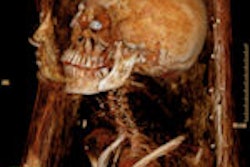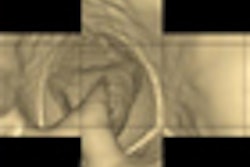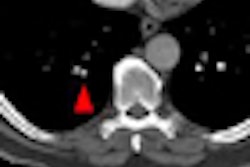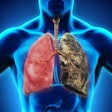Dear CT Insider,
A CT screening program is delivering surprisingly good outcomes in patients with a fast-growing form of lung cancer that CT surveillance wasn't expected to tame.
Researchers at Columbia University in New York City pored through the records of 43,000 individuals enrolled in the International Early Lung Cancer Action Program (I-ELCAP) screening trial led by Weill Cornell Medical College's Dr. Claudia Henschke, Ph.D., and colleagues.
Looking exclusively for screening subjects diagnosed with small cell lung cancer, the group compared cancer stages and five-year outcomes with a large Canadian database of small cell lung cancer patients who received standard care.
Find out what happened to the patients in this issue's Insider Exclusive -- brought to our CT subscribers first.
Meanwhile, reader variability at follow-up CT is one of several wildcards that can potentially diminish the value of a lung cancer screening program. But researchers toiling in the National Lung Screening Trial (NLST) found high levels of agreement on whether a nodule was positive or negative at follow-up. What to do with the findings was less of a love-in, as you'll learn by clicking here.
Computer-aided detection of lung nodules, usually reserved for use as a second reader, was encouraging but not overwhelmingly positive, according to an article by staff writer Erik L. Ridley.
Our final lung CT story comes from researchers from Rhode Island, who are taking aim at the overdiagnosis of pulmonary embolism, insisting that "dots aren't clots" -- and that they shouldn't be treated as such.
From an emergency department in Milan, Italy, comes a study that asks when, exactly, is delayed-enhancement CT scanning worth the extra time and radiation? Dr. Alessandro Lemos and colleague's findings are worth reading.
Low-dose virtual bronchoscopy successfully replaced the conventional form in Turkish children who had the misfortune to inhale a foreign object, according to a story by staff writer Cynthia E. Keen.
A long-term study from the University of California, San Francisco found that patients who recover miraculously from their appendicitis attacks don't escape the knife for long if their CT results are positive.
In cardiac CT, controversy rears its noisy head again in a breaking study from the Journal of the American Medical Association that caught many providers skipping common dose-reduction techniques. Meanwhile, a new American Heart Association science advisory urges great caution in deciding whom to scan.
And that's just the beginning. Scroll down for all the news that's fit not to print in your CT Digital Community.




















